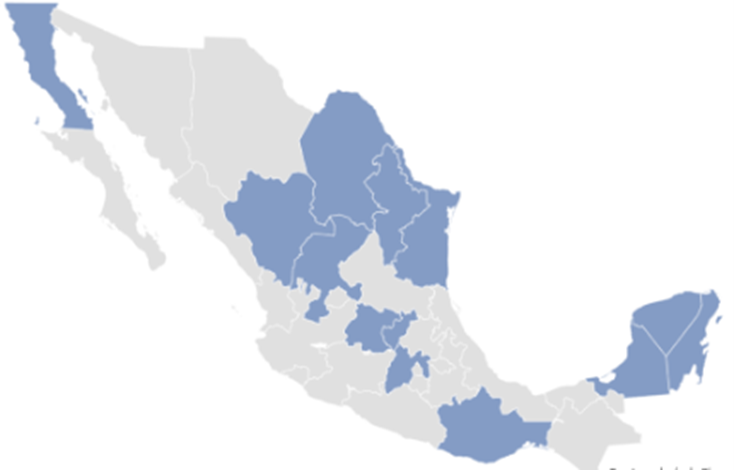
Ecological taxes: new updates in Mexico
Tax compliance
Ecological taxes: new updates in Mexico
Thu 14 Mar 2024
Several Mexican states had imposed ecological taxes in order to encourage certain industries to reduce their polluting emissions. In addition, green taxes have recently been imposed as a consequence of the warning issued by the Mexico Climate Initiative (MCI) that Mexico’s carbon dioxide emissions could increase by up to 59.8% by 2050 if the country’s green energy transition is not accelerated.
Notwithstanding these initiatives, there are still federal taxes or contributions to regulate water pollution by Federal Water Law, and excise taxes to discourage the consumption of fossil fuels.
In Mexico, each state has the capacity to legislate its own taxes, allowing the diversification of revenues for the states.
As pioneer of the initiative to ‘go green’, the state of Zacatecas imposed the first Mexican environmental or green taxes from 2019. The purpose of their implementation is to promote energy saving and discourage anti-environmental behavior, thereby motivating the use of renewable sources and innovation in sustainability. These and other initiatives also help states and the Federal Government create other programs aimed at protecting the environment.
In Mexico, legislative reforms have recently been put in place to introduce new taxes focused on environmental protection.
States with ecological taxes now include:
- Baja California Norte
- Campeche
- Coahuila
- Durango
- Estado de México
- Guanajuato
- Nuevo León
- Oaxaca
- Querétaro
- Quintana Roo
- Tamaulipas
- Yucatán
- Zacatecas

As of today, 34% of the states in Mexico have imposed taxing individuals and companies on activities that have a negative impact on the environment.
These new taxes are focused on stimulating reductions in:
- discharge into the atmosphere of carbon dioxide, methane and nitrous oxide
- discharge of pollutants in the water
- emission of organic and inorganic pollutants that are deposited, disposed of or discharged into the soil and/or subsoil
The basis for the calculation of environmental taxes depends on the type of pollution in the environment, for example, it can be through cubic meters of water affected, cubic meters of land contamination, tons of gases emitted, etc.
Conslusion
The Green Growth Strategy of the OECD provided initial guidance to governments on how to achieve economic growth and development, while preventing costly environmental damage and inefficient resource use.
Mexico and its states have taken up this advice and there can be considerable additional costs for those not operating in an environmentally friendly way. It is therefore important that businesses with operations or production plants in Mexico, analyse the financial and administrative impact of the way they conduct their business with respect to the environment.
Want to get notified when new blog posts are published?
Subscribe














